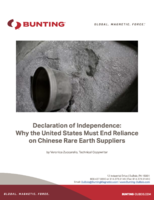Diffusion Chamber injects CO2, neutralizes process water pH/TSS.
Press Release Summary:
Resting above water drawn from concrete plant's cleanest detention basin or final weir, diffusion and injection chamber mixes CO2 gas into flowing water. Gas bubbles convert to carbonic acid and lower pH value. Specifically, concrete-grade 5000 Series models are set to lower settled process water to 7.5 pH, for release from plant property, and total suspended solids (TSS) to 14-17 range. CO2 gas-charged cylinder houses diffuser material and exhibits up to 90% gas utilization rate.
Original Press Release:
System Economizes Use of CO2 to Neutralize Process Water pH, TSS
New in-line diffusion and injection technology overcomes maintenance, efficiency and cost obstacles long associated with using carbon dioxide to bring concrete operations' process water to pH levels suited for environmental release or municipal sewer discharge. Covered by late-2011 patent filings, Fortrans' technology positions ready mixed and precast producers to trade safety concern-clouded acid treatment methods for one using benign CO2.
"We have a unique way of mixing carbon dioxide gas into flowing water, where gas bubbles convert to carbonic acid and lower the pH," says Fortrans CEO Bob Cooke. "Water from concrete plants too easily fouls the diffusers or sparger assemblies producers have traditionally tried for imparting carbon dioxide gas into high pH water."
Injecting CO2 through such devices in concrete plants tends to yield a gas utilization rate of about 20 percent. Fortrans' new diffuser and injection equipment exhibits up to 90 percent gas utilization, measured by the rate of CO2 conversion to pH-lowering carbonic acid before bubbles rise to the surface. Carbonic acid reduces pH by converting suspended solids into calcium and magnesium carbonates, thereby lowering the water's total suspended solids content to dischargeable levels.
Fortrans' concrete-grade 5000 Series models are set to lower settled process water to a) 7.5 pH, versus the Environmental Protection Agency's 9.0 pH threshold for release from the plant property; and, b) total suspended solids to the 14-17 range against the EPA's <30 threshold. Prior to the new diffusion and injection chamber, the models operated at about 75-80 percent CO2 utilization efficiency, but had limited capacity.
The patent-pending chamber consists of a CO2 gas-charged cylinder housing diffuser material, and rests above the flow of water drawn from the concrete plant's cleanest detention basin or final weir. It is engineered so that only diffused gas goes into the water, from which the chamber remains free of contact. - 866/958-7267, www.fortransinc.com




